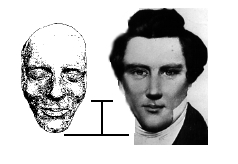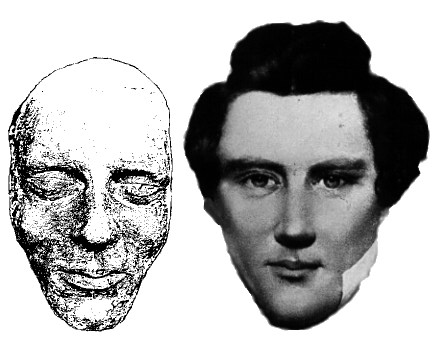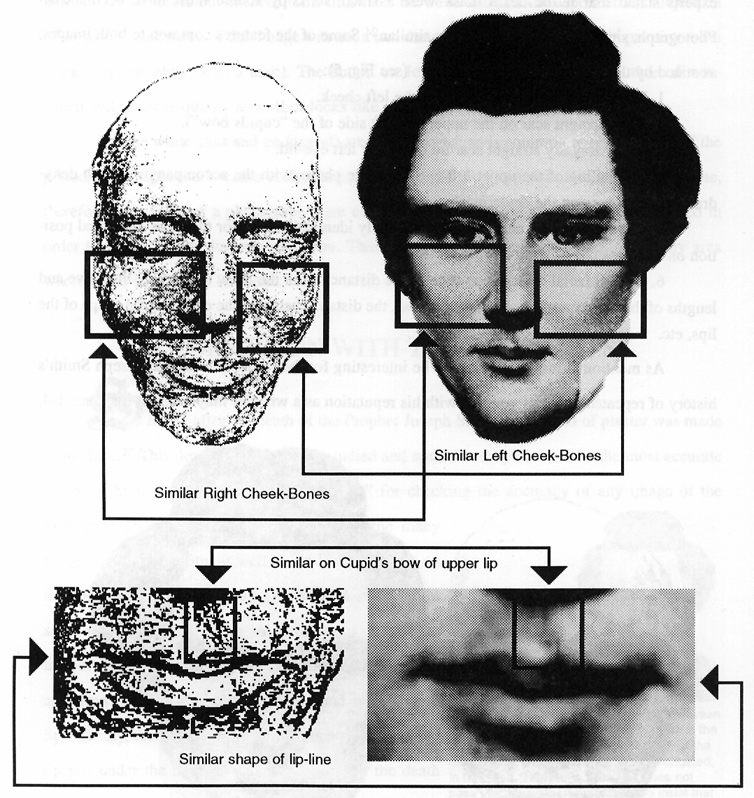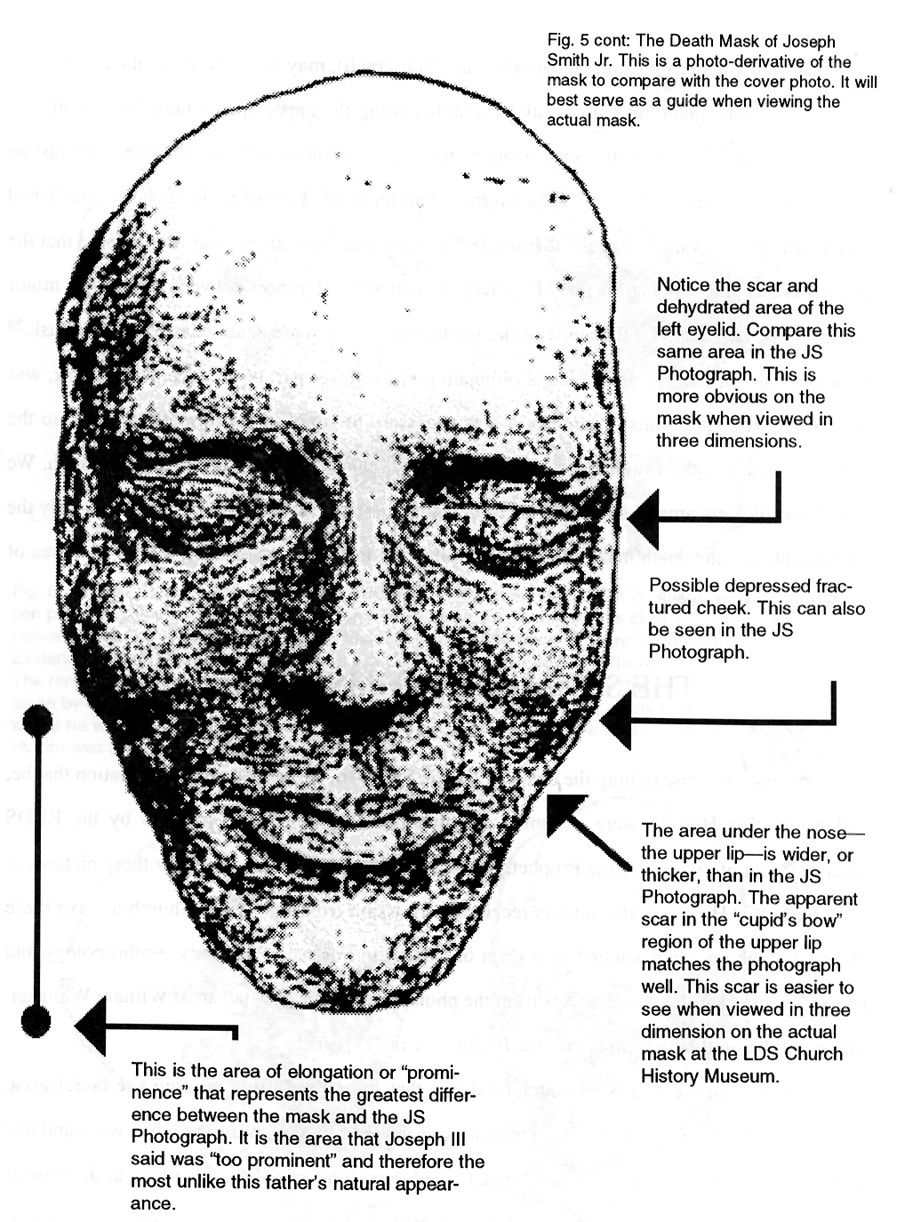A COMPARISON WITH THE DEATH MASK
Shortly after the death of the Prophet Joseph Smith Jr., a mold of plaster
was made of his face. This death mask has been studied and considered by
some to be the most accurate image of him, setting it up as a "litmus
test" for checking the accuracy of any image of the Prophet. The mask
has been compared to the many drawings and paintings of Joseph Smith, including
the JS Photograph on the cover. The photo does not match the death mask
in some very interesting areas. A comparison the two images shows that the
death mask has a more elongated area from the tip of the nose to the end
of the chin. Specifically, the "cupids bow" or the portion of
the upper lip just under the nose, is wider and fuller in the death mask.
(see Fig.4, below)

Fig. 4: Left: The plaster death mask of Joseph Smith. Right:
The JS Photograph. The area of greatest difference between the JS Photograph
and the Death Mask is the lower third of the face. Joseph III, the Prophet's
son, felt that the death mask was too prominent, or elongated, in this area.
This is the area that not pass the "litmus test" by those who
insist that all images must line up perfectly with the mask in order to
be called authentic. New research explains that, in fact, this particular
area should be longer than any photographic image.
Despite this elongated area, there are more similarities than differences.
Plastic and Facial Surgeons, a Forensic Pathologist and a Mortician were
able to examine a plaster copy of the death mask. One of the experts stated
that if the death mask were a fraud, its copy source must have been the
JS Photograph, since the two images are so similar. (see Fig.5, below).

Fig 5A: Left: The death mask of Joseph Smith. Right:
The JS Photograph.
Some of the features common to both images, as stated by these experts,
are listed below:
1. The depressed maxillary area of the left cheek.
2. The apparent scar on the upper lip (left side of the "cupids
bow"). (See Fig. 5B, below)
3. A horizontally straight scar on the upper left eye-lid.
4. A swelling of the upper left eye-lid in the photo, with the accompanying
death dehydration of that area on the death mask
5. The shape of the chin and jaw are nearly identical (except for
the more elongated position on the mask).
6. Overall facial dimensions such as the distance from the brow to
hairline, the curve and lengths of the eyebrows, the shape of the nose,
the distance between the eyes and the shape of the lips, etc.

Fig. 5A (Top): Identical similarity in cheek structure between
the death mask and the JS photograph. (Bottom): Identical similarity
between lip-scar and lip-line of the two images.

Fig. 5B: The Death mask of Joseph Smith Jr. This is a photo-derivative
of the death mask to compare with the JS Photograph. It will best serve
as a guide when viewing the actual mask located at the LDS Church History
Museum across the street from Temple Square in Salt Lake City, Utah.
As mentioned previously, it may be interesting for the reader to note
that Joseph Smith's history of repeated beatings coupled with his reputation
as a wrestler may account for items 1-4. The scar on the upper lip (more
apparent in the photograph), may be evidence of the night a bottle of poison
was forced into his mouth by a mob, cutting the upper lip and breaking a
tooth.
As stated the similarities greatly outweigh the differences, however the
question must be asked, "Why is there a difference between these two
images?" First of all it was established historically and by various
experts that the JS Photograph was authentic, and we accepted that the death
mask as probably legitimate. Experts state that any differences between
the two are minor and could be explained by the angle of the photograph
or by some death changes in the mask. However, we felt that the difference
of elongation in the lower part of the face, in the mask, was significant.
To explain this difference, it was necessary to get all the information
related to the mask, the death of the Prophet and any facial changes that
could have occurred after death. We found a whole new area of study that
answers many questions and helps substantiate not only the photograph, but
the death mask as well. The following is a brief explanation of this new
area of study and its findings.
<- BACK
NEXT CHAPTER ->